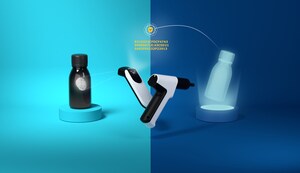Merck Drives Thought Leadership in Ethical Gene Editing
- Co-authored publication, "Ethical Considerations in the Manufacture, Sale and Distribution of Genome-Editing Technologies," accepted in leading bioethics journal
- Highlights importance of science-based bioethics in genome editing and novel processes to ensure products meet the highest standards
DARMSTADT, Germany, June 12, 2018 /PRNewswire/ -- Merck, a leading science and technology company and leader in genome editing, today announced that The American Journal of Bioethics has accepted a novel publication on ethical issues in genome editing to be printed in its July issue. A summary version has been published in The American Journal of Bioethics' blog.
"Publication of this work demonstrates that Merck is a true ethical innovator," said Udit Batra, member of the Merck Executive Board, and CEO, Life Science. "Merck established a Bioethics Advisory Panel — a diverse group of global biomedical experts — to provide guidance for research in which its businesses are involved, including research on or using genome editing. We take this work very seriously."
Co-authored by colleagues from the company's Bioethics Advisory Panel and colleagues from the Life Science and Healthcare business sectors of Merck and the company's Corporate Affairs function, the publication discusses critical ethical issues involved with the practical processes of discovery, development, manufacture, sale and distribution of genome-editing technology products such as Clustered Regularly Interspaced Short Palindromic Repeat (CRISPR).
"Our publication incorporates the critical responsibilities of suppliers such as Merck," said Dr. Jochen Taupitz, a renowned ethics expert and professor at the University of Mannheim, and co-author of the publication. Taupitz is also a member of the Bioethics Advisory Panel of Merck.
"As a company that is leading the way in genome-editing innovation, Merck recognizes a need to develop and implement science-based bioethics," said Steven Hildemann, global chief medical officer at the Healthcare business sector of Merck, and senior author of the publication. "This publication describes our novel approach to ensure our genome-editing products are developed and distributed adhering to the highest standards of rapidly evolving bioethical guidance."
Merck's Bioethics Advisory Panel has defined a clear operational position taking into account scientific and societal issues to inform promising therapeutic approaches for use in research and applications.
A popular method of editing genes, CRISPR acts as genetic scissors which can be used to remove or replace an existing gene, switch a gene on or off or insert a new gene with unprecedented accuracy.The publication leverages the experience of the company's Life Science business in developing and selling CRISPR genome-editing technology over the past 13 years.
The Life Science business of Merck has secured patents in Australia, Canada, China, Europe, Israel, Singapore and South Korea covering foundational CRISPR technology. Its CRISPR patents are directed to chromosomal integration, or cutting of the sequence of eukaryotic cells and insertion of a synthetic exogenous DNA sequence to make a desired genomic change. Scientists can replace a disease-associated mutation with a beneficial or functional sequence — important for creating disease models and allowing new gene therapy solutions.
Merck has made significant contributions to the genome-editing field. It was the first company to offer custom biomolecules for genome editing globally (TargeTron™ RNA-guided group II introns and CompoZr™ zinc finger nucleases), driving adoption of these techniques by researchers all over the world. Merck was also the first company to manufacture arrayed CRISPR libraries covering the entire human genome, accelerating cures for diseases by allowing scientists to explore more questions about root causes.
An online preview of the genome-editing bioethics publication in The American Journal of Bioethics can be found at:
http://www.bioethics.net/2018/05/ethical-considerations-in-the-manufacture-sale-and-distribution-of-genome-editing-technologies/
For more information on Merck's work in the genome-editing field, visit https://www.merckgroup.com/en/stories/350-anniversary-its-all-in-the-genes.html and
http://ar.merckgroup.com/2017/magazine/new-ways-of-identifying-disease.
Follow Merck on Twitter @Merckgroup, on Facebook @merckgroup and on LinkedIn.
All Merck press releases are distributed by email at the same time they become available on the Merck Website. Please go to www.merckgroup.com/subscribe to register online, change your selection or discontinue this service.
About Merck
Merck is a leading science and technology company in healthcare, life science and performance materials. Almost 53,000 employees work to further develop technologies that improve and enhance life – from biopharmaceutical therapies to treat cancer or multiple sclerosis, cutting-edge systems for scientific research and production, to liquid crystals for smartphones and LCD televisions. In 2017, Merck generated sales of €15.3 billion in 66 countries.
Founded in 1668, Merck is the world's oldest pharmaceutical and chemical company. The founding family remains the majority owner of the publicly listed corporate group. Merck holds the global rights to the "Merck" name and brand. The only exceptions are the United States and Canada, where the company operates as EMD Serono, MilliporeSigma and EMD Performance Materials.
Photo - https://mma.prnewswire.com/media/703938/Ethicalgeneediting.jpg





Share this article